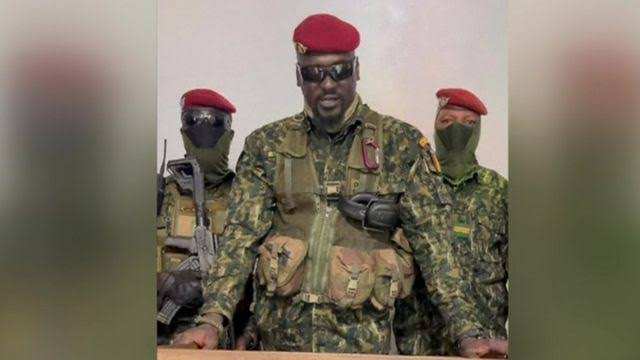By John Ikani
Plans by Guinea junta to rename the country’s airport after authoritarian ex-president Sekou Toure have been met with stiff opposition from rights groups.
Toure led Guinea to independence from France in 1958 and was initially acclaimed as a progressive leader. But he later ruled the West African country with an iron fist until his death in 1984.
Protesting against the move on Saturday, the rights group warned the Junta to scrap the move, stressing that Toure’s regime was responsible for the death or disappearance of some 50,000 people — many at a military base in the capital Conakry called Camp Boiro.
The protest came days after Guinea’s junta announced on Thursday that it would rename the Conakry airport after Sekou Toure.
At a news conference in the capital Conakry, the head of the Camp Boiro victims association, Abdoulaye Conte, said he was “dismayed” and “shocked” and the decision to rename the airport.
“We are talking about a tyrant who left behind thousands of victims in mass graves,” he said.
“How can Guinea forget its history?” Conte added, urging the junta to repeal the decision.
Also present at the conference were representatives, a former minister as well as transitional prime minister Mohamed Beavogui who rained criticism on Guinea’s military rulers, telling local media on Friday that he was “displeased and overwhelmed”.
Beavogui, a civilian, was appointed as Guinea’s prime minister after Colonel Mamady Doumbouya seized power in a military coup in September, ousting elected president Alpha Conde.
Doumbouya, a former special forces commander, defied broad condemnation of the putsch and was sworn in as interim president on October 1.
The strongman has nevertheless promised to restore civilian rule after a transition period of unspecified length, and to unite the politically fractious nation of 13 million people.



































